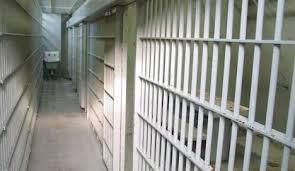
Alkarama had already seized on 18 January 2007 this same case to the UN Special Rapporteurs on extra-judicial executions; on torture; and on the promotion and protection of human rights while countering terrorism.
Mounir Hammouche, born on 15 December 1980, living in Ain Taghrout (Wilaya of Bordj Bou Arreridj) was arrested on Thursday 20 December 2006 at 8pm, at the exit of the city mosque. Armed men in civil clothing, riding in a grey car - a Peugeot 406, registered in Algers, grabbed him. He was driven to the barracks of the Département du renseignement et de la Sécurité (Department for Intelligence and Security - DRS)
According to his family, the agents blamed him for "not having prayed in the mosque closest to his home", and for "having a beard as well as wearing Islamic clothing". He was released the next day on 21 December but did not want to say if he had been tortured during this first arrest.
Two day later, on 23 December 2006, he was kidnapped again by the same people driving the same vehicule, again at the exit of the mosque after the last prayer of the evening. Six other people were arrested in the same circumstances. All were taken to Constantine to the Territorial Centre for Research and Investigation (Centre territorial de recherche et d'investigation - CTRI), under the control of the DRS, where they were subjected to torture and ill-treatment from 23 December 2006 to 3 January 2007.
On 29 December, Mounir Hammouche's relatives were informed of his death during his pre-charge detention. The security services returned the body that evening, saying that he had "probably committed suicide" and that "an autopsy had in any case been performed".
The family then noted that the victim had numerous traces of torture including an injury on the head as well as bruising on his hands and feet. The family proceeded to bury the deceased the next day on 30 December 2006 in the presence of the security authorities and under the eye of the police. The family is persuaded that Mounir Hammouche died as a consequence of acts of torture he suffered while he was in police custody at the DRS barracks in Constantine.
All the steps undertaken by the family in order to file a complaint against the DRS services have been in vain. The General Prosecutor of Constantine refuses to give them a copy of the autopsy report, arguing that a legal investigation was under way and that the results would be communicated in due course. Despite all these promises made by the authorities, the Hammouche family has not obtained any official information on the circumstances surrounding Mounir's death.
Alkarama, which has followed this case from the beginning, recalled its contribution to the Committee Against Torture regarding M Mounir Hammouche's case and the lack of inquiry by the Algerian authorities following the victim's family's complaint in the context of the review of Algeria's periodic report on 4 April 2008.
Mr Hamed Abdelwahab, a member of the Algerian delegation declared during the Committee Against Torture's session on 5 May 2008 that an autopsy had been carried out by Dr Benharkat (the director of the Medico-Legal Institute of Constantine), who had concluded that a suicide by hanging was the cause of death. He added that the family could ask for an autopsy report as well as the minutes of the preliminary inquiry, adding that "an investigation was under way."
In its Concluding Observations adopted on 13 May 2008, the Committee Against Torture evoked the death in policy custody of Mounir Hammouche, revealing that the deceased's family had not had access to the autopsy report.
Despite official affirmations, the victim's family has, to this day, still not obtained either a copy of this report, or any other official documents on this case. It is for this reason that they have decided to address the Committee Against Torture in order to have them affirm the violations of the Convention Against Torture committed by the Algerian authorities, which has been a state party since 12 September 1989.
Alkarama recalls that most of the DRS agents responsible for serious violations of human rights during the 1990s, many of whom have been promoted, are still in their posts and their impunity is guaranteed since the enactment of an amnesty law in February 2006. This law mentions in article 45 that "no legal proceedings may be engaged, on individual or collective terms, with regard the elements of the defense and security forces of the Republic. (...) Any complaint must be declared inadmissible by the competent legal authorities."
This amnesty encourages the perpetuation of the practice of torture, which continues to be found in the secret detention centers controlled by the DRS, particularly during the period of policy custody. The experts of the Committee Against Torture are aware of the systematic nature of this practice in Algeria, and have made numerous recommendations to the government to remedy this problem.
